Do you have what it takes to be a highly successful CFO?
According to Gartner’s survey, only one in five (20%) of today’s CFOs both exceed CEO expectations for contribution to short-term financial performance and promote company behaviors that lead to sustainable top and bottom-line growth.
This is a wake-up call for CFOs to change gears.
If you want to be a truly successful CFO, you must close the gap or risk losing the front seat as the trusted co-pilot in the C-suite to deliver enterprise value to company shareholders.
But what are the distinguishing qualities or characteristics of a highly successful CFO?
In this article, I share my take based on decades of personal experience and interaction working and connecting with fellow CFOs and finance leaders. In a nutshell, I believe that if you want to become a highly successful CFO, you must master and excel in the these seven 🅿️s:
1️⃣ Purpose: Vision & Mission
2️⃣ Performance: Value & Contribution
3️⃣ Partnership: Intelligence & Analytics
4️⃣ People: Skillsets & Mindsets
5️⃣ Process: Operation & Governance
6️⃣ Platform: Technology & Systems
7️⃣ Principle: Ethics & Integrity
Purpose: Vision and Mission
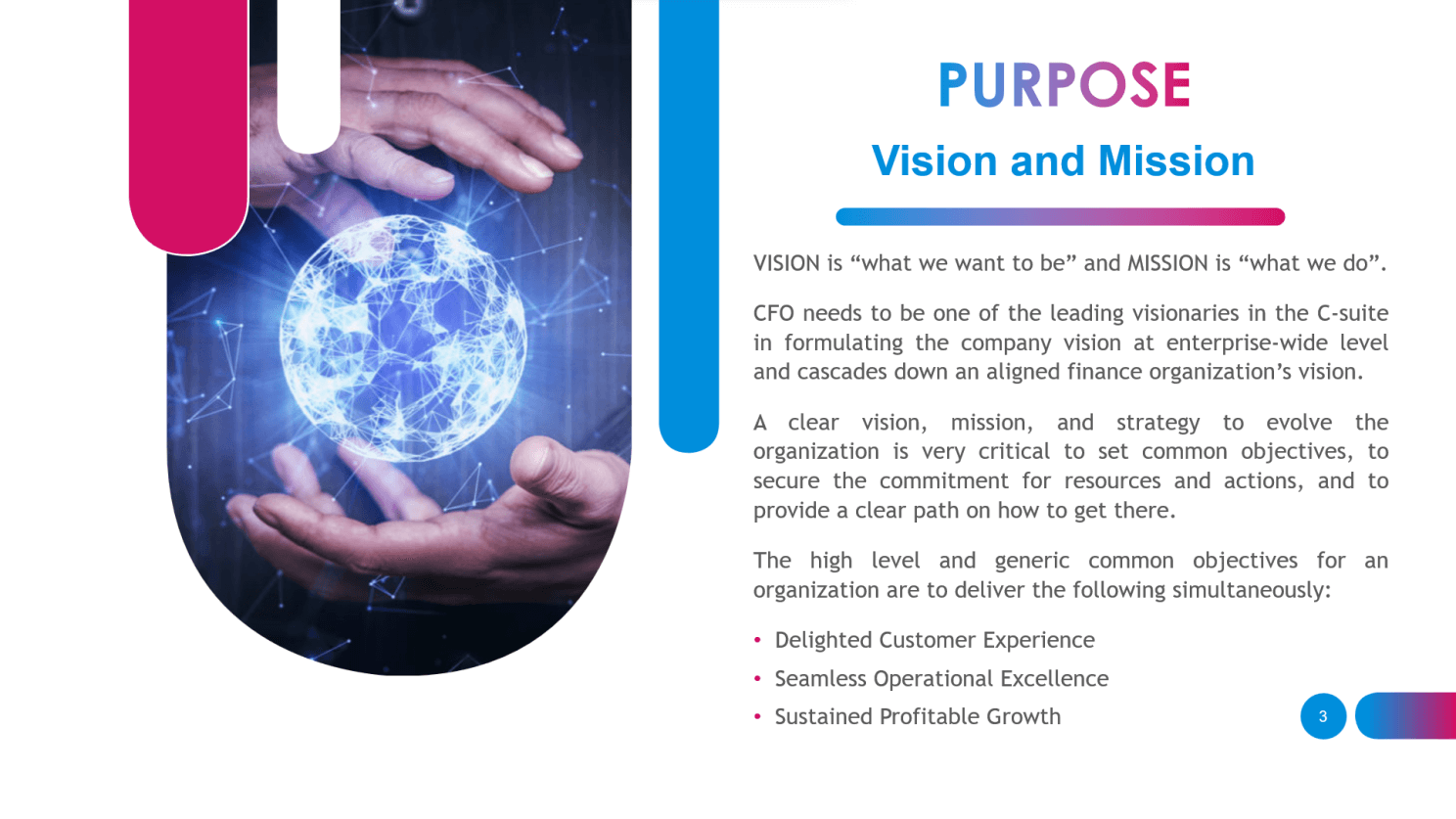
The CFO needs to be the co-pilot of the CEO in the C-suite. This means the CFO must play an active role in formulating the company vision at an enterprise-wide level.
VISION is “what we want to be” and MISSION is “what we do”.
A clear vision, mission, and strategy to evolve the organization are critical to:
- Set common objectives
- Secure a commitment to resources and actions
- Provide a clear path on how to get there.
The high level and generic common objectives are to deliver values on three fronts:
- Delighted Customer Experience
- Seamless Operational Excellence
- Sustained Profitable Growth
Performance: Value and Contribution
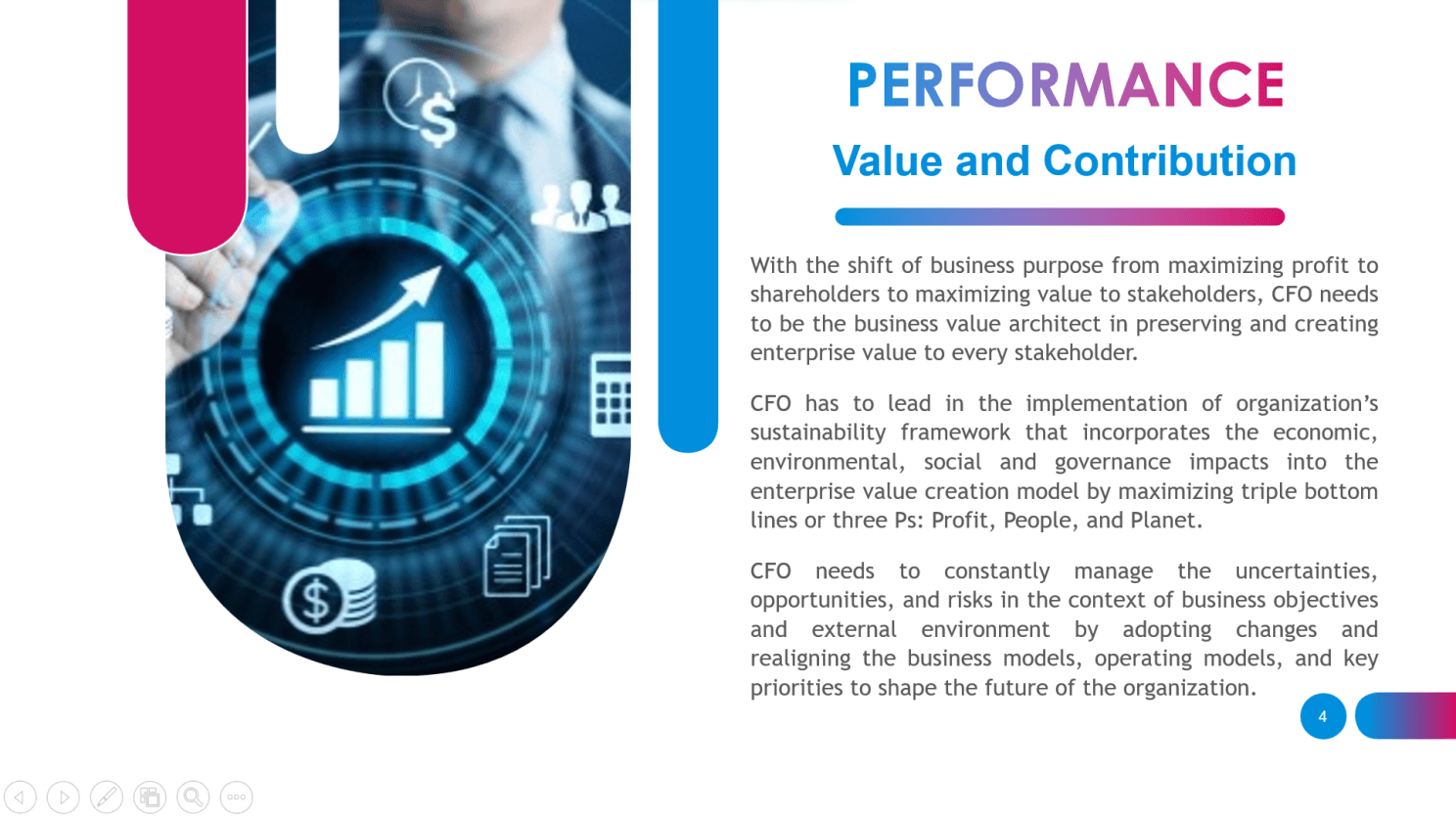
A CFO needs to be the business value architect in preserving value and creating value for the organization and the stakeholders.
The purpose of a business organization has shifted from maximizing profit for shareholders to maximizing value for stakeholders. Hence, the CFO has to lead the implementation of sustainability frameworks that incorporates economic, environmental, social, and governance impacts into the enterprise value creation model by maximizing triple bottom lines or three Ps: Profit, People, and Planet.
The CFO needs to constantly manage the uncertainties, opportunities, and risks in the context of business objectives and the external environment by challenging the effectiveness of existing business and operating models, recommending the required adoptions and changes, and realigning the key priorities to shape the future of the organization.
Partnership: Intelligence and Analytics
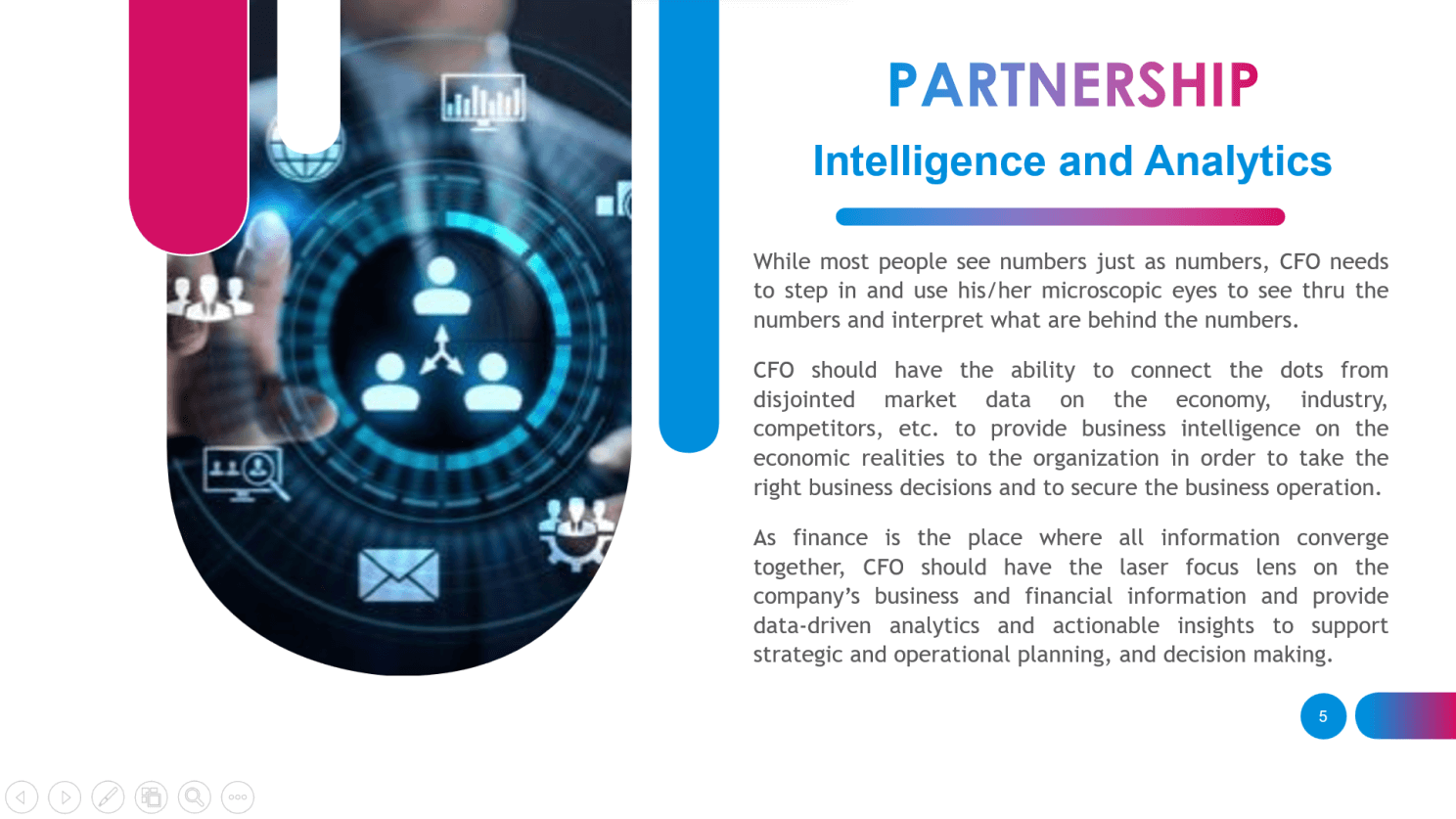
While most people see numbers just as numbers, the CFO needs to step in and use his/her microscopic eyes to see through the numbers and interpret what is behind them.
The CFO should have the ability to connect the dots from the disjointed market data on the economy, the industry, the competitors, etc., hence providing business intelligence on the economic realities to the organization to make the right business decisions. Besides, he or she should also have a laser-focused lens on the company’s financial information and provide data-driven analytics and actionable insights to support strategic and operational planning and decision making.
By having an in-depth understanding of the company and the environment in which it operates, the CFO can ask thought-provoking and challenging questions. At the same time, they can provide guidance and advice that supports the organization and helps to deliver sustained profitable growth.
People: Skillset and Mindset
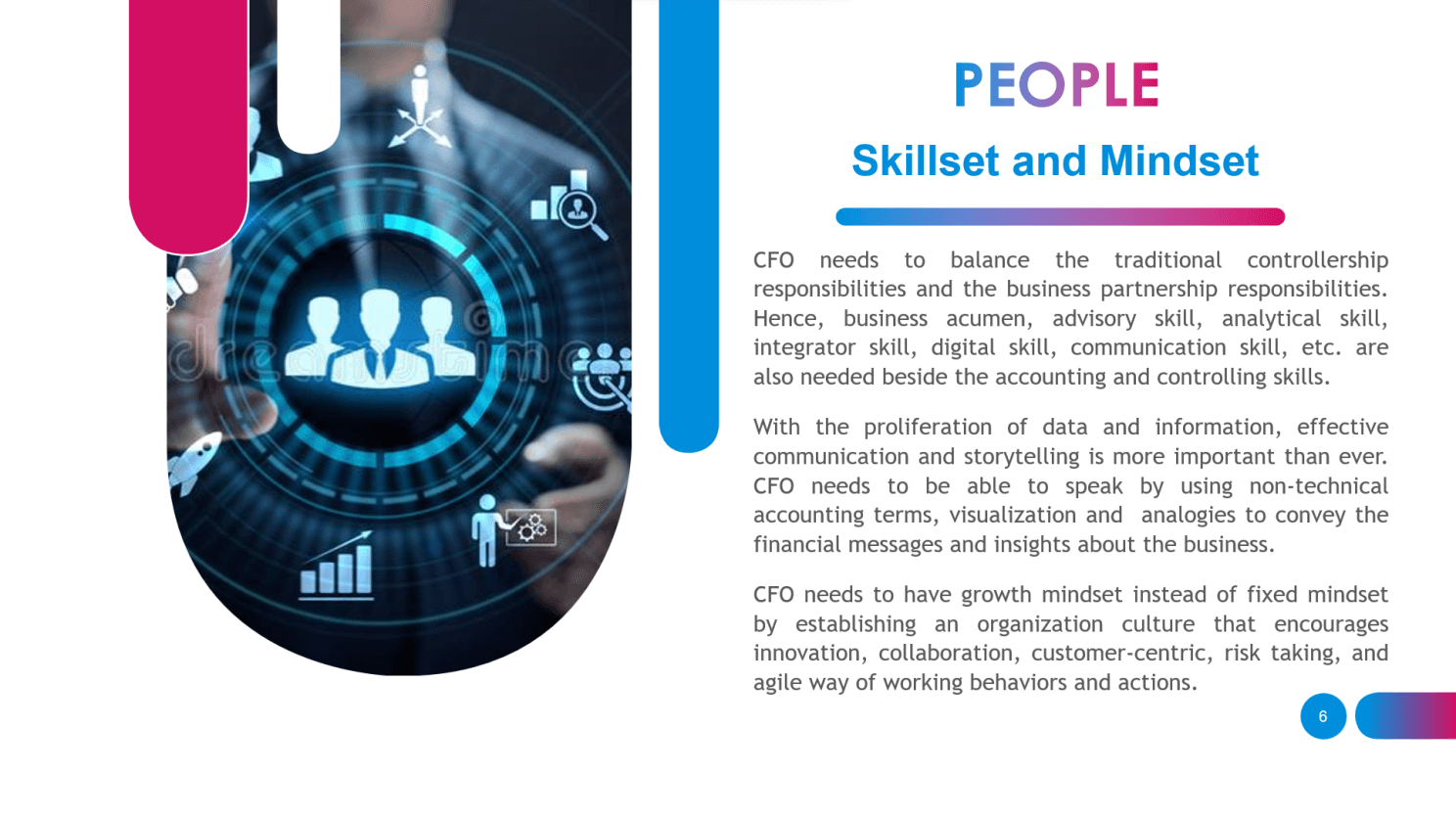
While the technical foundation in finance and accounting is important, the competency needed to succeed as CFO is not just about technical skills. The EQ is now playing an important part besides IQ. Business acumen, strategic thinking, communication skill, advisory skill, integrator skill, digital skills, analytic skills, etc. are also needed. The CFO needs to balance the traditional controllership responsibilities with the business partnership responsibilities.
With the proliferation of data and information, effective communication and storytelling are more important than ever. The CFO needs to be able to speak by using non-technical accounting terms and using bullet points, pictures, graphs, and analogies instead of just using tables of numbers to convey the financial messages and insights.
The CFO also needs to possess a growth mindset instead of a fixed mindset by establishing an organizational culture that encourages and embraces innovation, collaboration, customer-centric, growth, risk-taking, fail fast, learning from mistakes, and agile way of working behaviors and actions.
Process: Operation and Governance
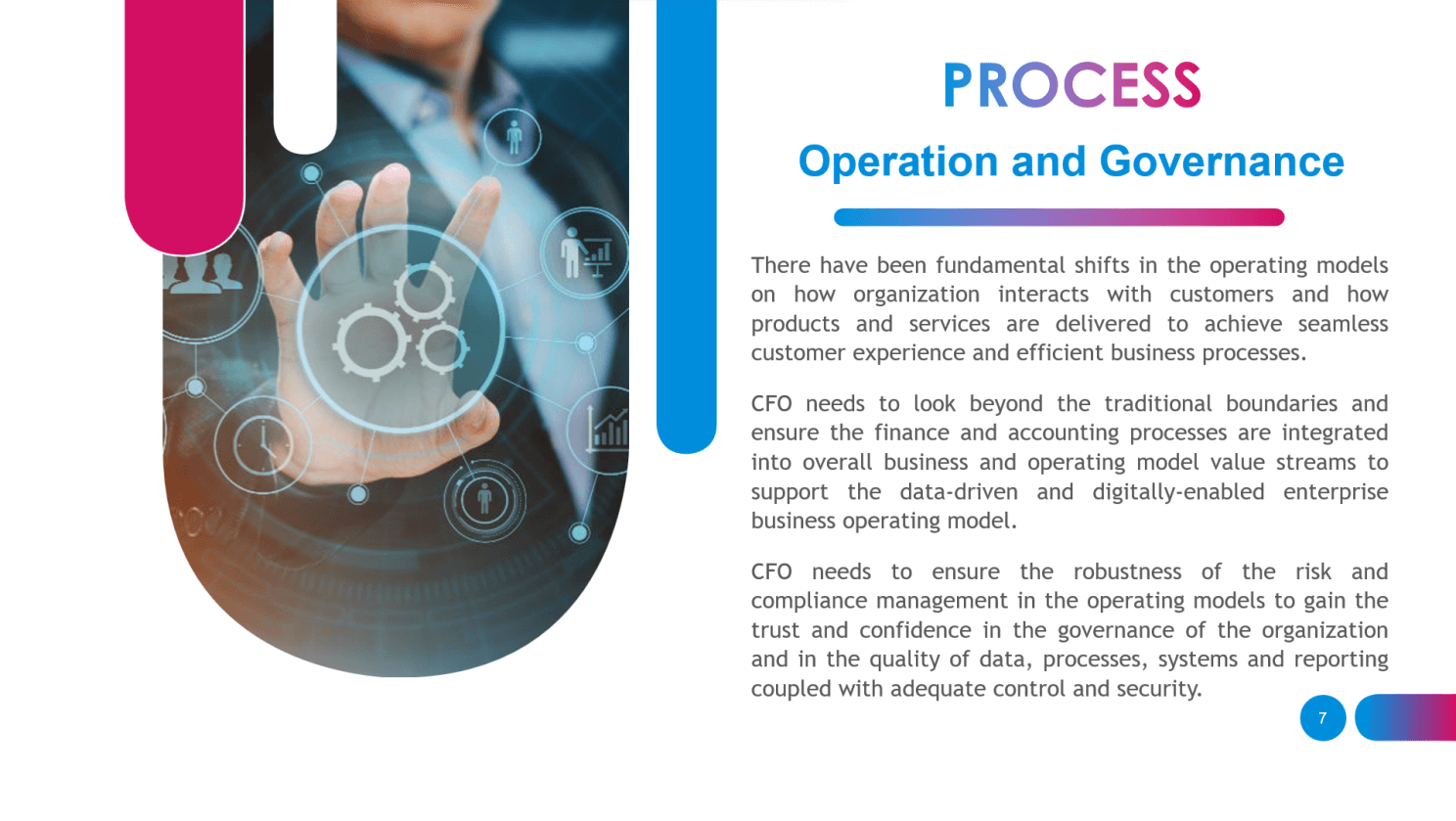
There have been fundamental shifts in the operating models on how an organization interacts with customers and how products and services are delivered to achieve seamless customer experience and efficient business processes.
The CFO needs to look beyond the traditional boundaries and ensure the finance and accounting processes are integrated into the overall business and operating model value streams to support the data-driven and digitally-enabled enterprise business models. These are fundamental shifts in how an organization interacts with customers and how products and services are delivered to achieve seamless customer experience and efficient business processes.
A successful CFO also needs to ensure the robustness of the risk and compliance management around these business and operating models to gain the trust and confidence in the governance of the organization and the quality of data, processes, systems and reporting with adequate control and security.
Platform: Technology and Systems
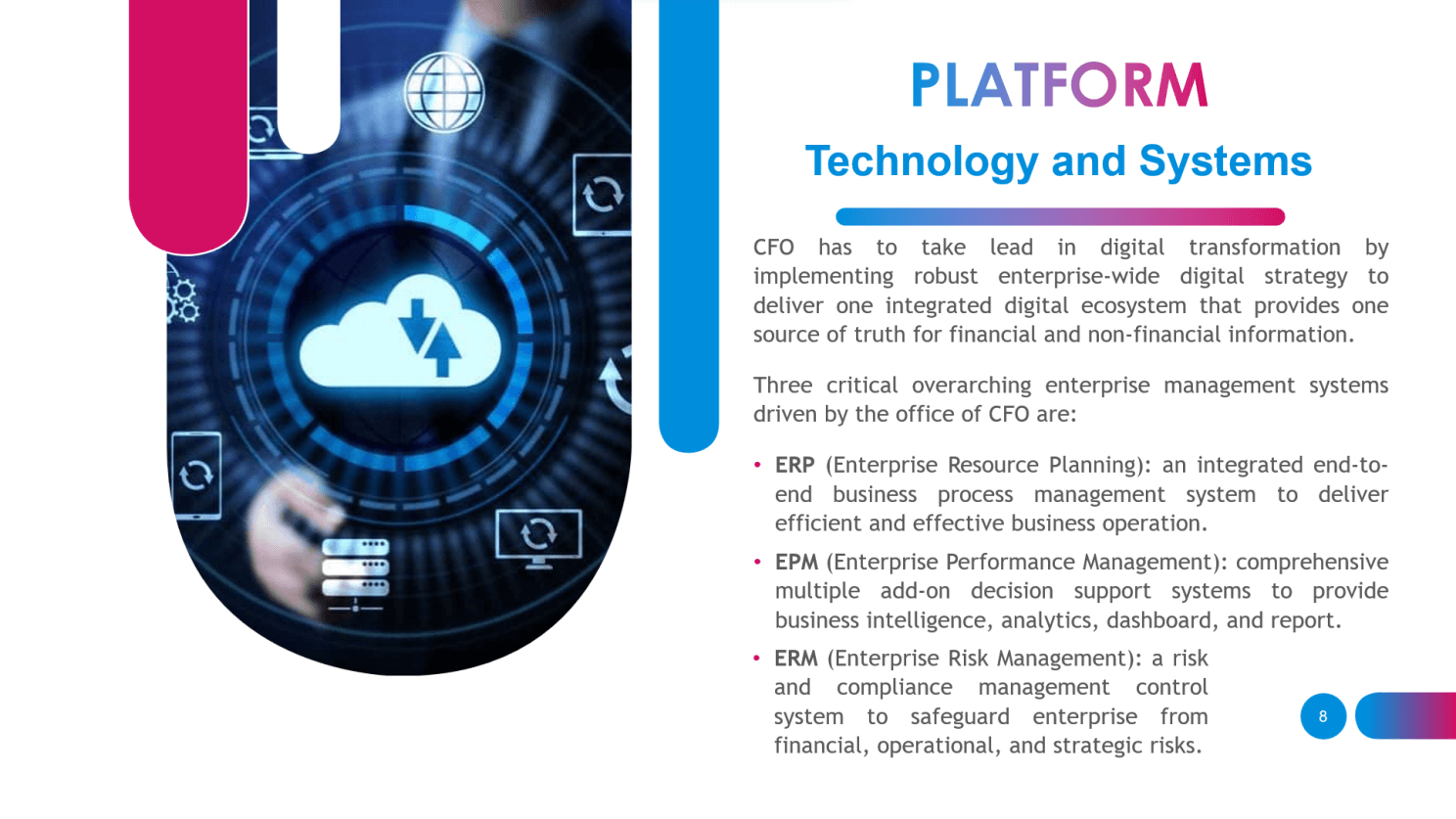
The CFO needs to take lead in digital transformation. By implementing a robust enterprise-wide digital strategy with a clear roadmap, the organization has one integrated digital ecosystem that provides one source of truth for any financial and non-financial information.
Digitalization enables organizations to harness the power of information. As finance is the place where all the information converges together, the CFO has a unique opportunity and unfair advantage to unleash the power of data and provide one integrated set of facts to drive business performance and secure business operation.
Three critical overarching enterprise management systems driven by the office of the CFO are:
- ERP (Enterprise Resource Planning): an integrated end-to-end business process management system to deliver efficient and effective business operation.
- EPM (Enterprise Performance Management): comprehensive multiple add-on decision support systems to provide business intelligence and business analytics.
- ERM (Enterprise Risk Management): risk and compliance management control systems to safeguard enterprises from financial, operational, and strategic risks.
Principle: Ethics and Integrity
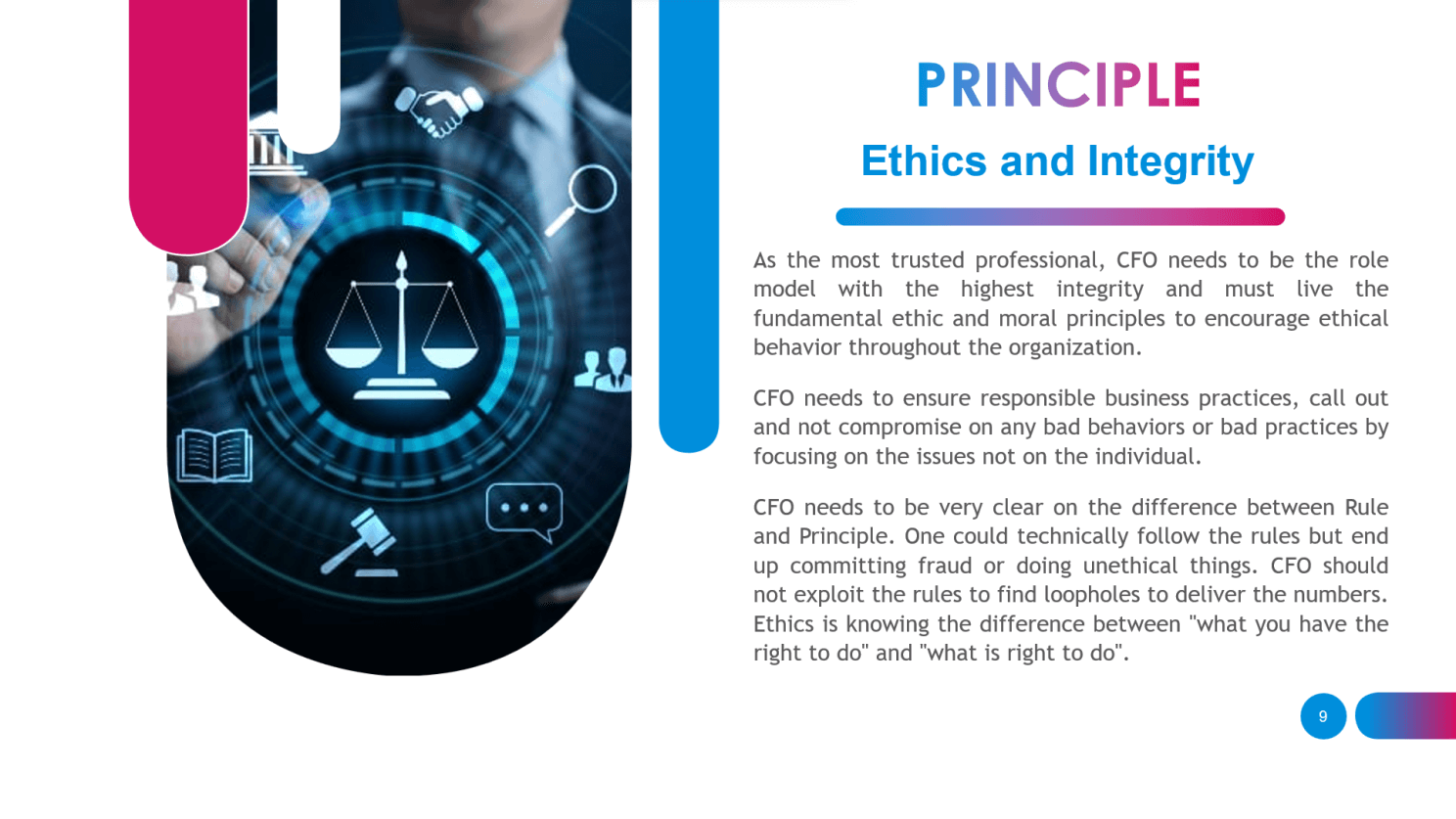
As a trusted professional, the CFO needs to be the role model with the highest integrity and must live the fundamental ethical and moral principles to encourage ethical behavior throughout the organization. He or she needs to ensure responsible business practices, call out and not compromise on any bad behaviors or bad practices by focusing on the issues, not on the individual.
The CFO needs to be very clear on the difference between rule and principle. The CFO should not exploit the rules to find the loopholes to deliver the numbers. One could technically follow the rules but end up committing fraud or doing unethical things. Ethics is knowing the difference between "what you have the right to do" and "what is right to do".
The easiest way to explain this is to take the case of the former Enron’s CFO, Andy Fastow. Wallstreet gave him two very contradictory titles, from the greatest CFO of the year to the greatest master of fraud in corporate history for doing the same deals. The deals were in accordance with the applicable rules and were formally approved by the board of directors, management committee, internal and external attorneys, bank attorneys, audit firms, accountants, etc.

Summary
A highly successful CFO is a biz-tech finance leader with the business acumen to align strategies across the organization and to drive business transformation and operational transformation. He or she also needs to have the technical acumen to be an information and technology integrator and to provide an integrated enterprise digital ecosystem with one source of truth for any financial and non-financial information. As a finance professional, he or she needs to have the financial acumen to carry out the finance controllership and the business partnership responsibilities in delivering enterprise value to the stakeholders.
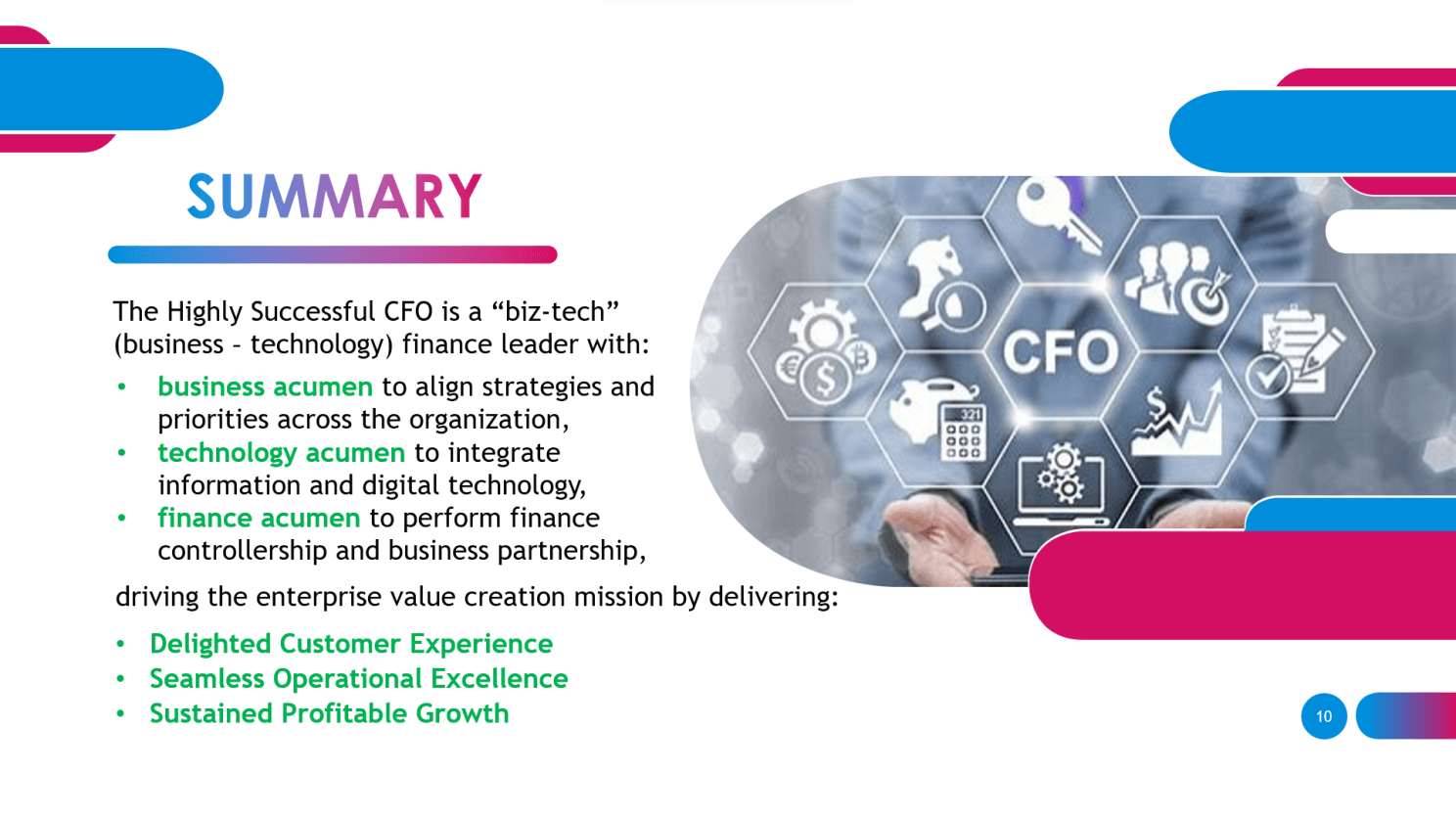
So... with all of that being said, it leaves us with one final question:
Do you have what it takes to be a highly successful CFO?
Want to be the first to know about new blog posts, podcasts, upcoming events, reports, and industry news? Subscribe to the Finance Alliance Fix newsletter today!



 Follow us on LinkedIn
Follow us on LinkedIn



